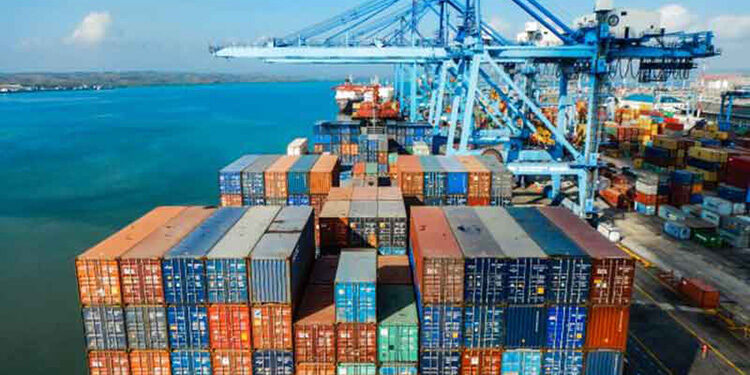Operations to deliver cargo destined for South Sudan are set to resume at the port of Mombasa after Kenya and South Sudan struck a deal to end a month-long stalemate. This deadlock had paralyzed trade following the introduction of a new invoicing system by the government of South Sudan.
The directive to resolve the impasse follows a meeting held on January 14, 2025, involving stakeholders and a delegation from the South Sudan Revenue Authority (SSRA) in Mombasa.
According to a letter dated January 14, 2025, from the Commissioner of SSRA, the stalemate resulted in massive congestion at the port of Mombasa. This congestion was primarily caused by a strike by the Long-Distance Drivers Union at the Elegu border, which led to significant delays for goods and trucks departing from Mombasa. The delays also adversely affected the loading of additional cargo at the port.
Further complicating the situation was a new policy requiring importers to pay taxes within South Sudan’s territorial jurisdiction before the release of cargo at ports of entry within East African Community (EAC) countries. This measure aimed to address malpractices by some importers who had been altering declared values to evade tax obligations owed to the South Sudanese government.
Speaking to the press, the Commissioner General at SSRA, Hon. Simon Akuei Deng, clarified that the newly introduced system of invoicing is designed to secure trade and prevent practices like dumping or tax evasion along the Northern Corridor. “The new system is intended to enhance transparency in the invoicing and monitoring of cargo, which is essential to supporting legitimate trade,” he said.
Hon. Deng also emphasized that the long-term goal is to fully integrate South Sudan’s cargo operations with the Single Customs Territory Framework, which enables real-time data sharing and prevents cases of cargo diversion to other partner states or dumping of goods.
To address the crisis, the SSRA temporarily suspended the new invoicing procedures for two weeks to expedite the clearance of containers and decongest the port. These procedures are scheduled to be reinstated on February 1, 2025. Additionally, the letter authorized the clearance of all cargo destined for South Sudan at border ports of entry, a move aimed at streamlining the clearance process and ensuring compliance.
Before reaching this milestone, a series of engagements took place between the SSRA, the Kenya Revenue Authority (KRA), the Kenya Ports Authority (KPA), Central Corridor, and the transport and logistics fraternity. Discussions centered on resolving the current stalemate and clearing the congestion at the port of Mombasa.
The newly elected President of the South Sudan Freight Forwarders Association (SSFFA), Mr. Daniel Deng in the consultative meetings with the Federation of East African Freight Forwarders Associations (FEAFFA) and the Kenya International Freight and Warehousing Association (KIFWA) stressed the negative impact the stalemate was having on the industry and business in general in South Sudan.
“Our members are the biggest losers. That is why we are relentlessly engaging stakeholders to quickly resolve this issue,” said Mr. Deng.

Mr. Elias Baluku, the Acting Executive Director of FEAFFA, urged the industry players to enlighten the government on the negative implications of the new policy to inform a possible review of the policy. He also encouraged SSFA to push for interim intervention to unlock the stalemate as a long-term solution is sought.
Traders and clearing agents from both countries had voiced their frustration over losses caused by delays in cargo release from the port of Mombasa adding that this will result in demurrage charges.
Demurrage charges are fees imposed when cargo remains at a port or terminal beyond the agreed-upon free period specified in a shipping contract. These charges compensate carriers and port operators for extended container usage due to delayed clearance.
On January 2, 2025, traders at the port of Mombasa, led by KIFWA, criticized the government of South Sudan for contributing to the port’s congestion. KIFWA’s national chairman, Mr. Roy Mwanthi, accused the South Sudanese government of imposing excessively high taxes on cargo destined for the country, further exacerbating the delays.
The article was published by Andrew Onionga and can be reached at oniongaam@gmail.com Tel: +254733780240





